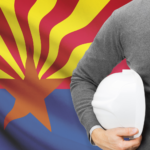We are grateful for your support of the Goldwater Institute’s efforts to advance and defend liberty throughout the United States. For over 36 years, we’ve been defending the rights of Americans to live their lives free from government interference.
And Goldwater is unique in that we direct our efforts to the 50 states where we introduce and advance innovative ideas that expand freedom. And we fight in courtrooms and capitals nationwide to defend individual liberty.
In 2024 alone, we scored over 50 policy and litigation victories defending liberty!
And that’s just the beginning.
Our plans for 2025 include:
- Stopping pernicious DEI and other woke programs in America’s universities.
- Ensuring that patients suffering from rare and terminal diseases have access to cutting-edge, lifesaving medical treatments, without having to first seek permission from the government.
- Defending parental rights across the United States so that parents can send their kids to the school that best fits their needs, free from leftist indoctrination.
- Eliminating government interference in the fundamental right of individuals to own property and use it as they see fit.
- And much, much more
We seek to restore the presumption of liberty; that people are free to act without first asking permission from the government.
But we cannot do this without you. Will you join us as we fight to preserve and advance liberty throughout the country? As we seek new and innovative ways to defend freedom in all 50 states?
And there’s great news: Thanks to a generous Goldwater supporter, your donation today will be doubled!
So please, join us in fighting to advance liberty and score real wins for freedom from coast to coast!










